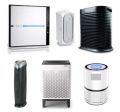Power Quality Equipment Market - Global Industry Analysis, Size, Share, Growth, Trends
Power Quality Equipment Market: Overview
Power quality is addressed typically based on a number of parameters. Common parameters such as flicker, current, harmonics, voltage dips, power, voltage, and transients are handled by power quality measurement equipment. These equipment are able to handle multiple disturbances. The fact that instruments which can handle multiple disturbances measurements is the prime reason for its usage in power quality measurement because these disturbances tend to become a potential fault condition. It is difficult to predict in advance what kind of disturbances may result in a potential fault; therefore, instruments with multiple disturbance detection capabilities are put into use.
Power Quality Equipment Market: Dynamics and Trends
Power quality monitoring equipment are embedded in the system itself for ease of access and improved accuracy in measurements. Power quality equipment primarily aim to reduce multiple equipment usage in a system where the entire work of measurement can be done with a single or a couple of units. As the system grows, the scalability of the power quality measurement equipment increases. Thus, it is possible to analyze multiple meters simultaneously. These equipment can centrally configure and administer meters into groups. They can automatically download data from the meters itself. A simplified overview of the disturbance can be achieved. This output can be spread throughout the grid for rectification process.
Request a Sample-
https://www.transparencymarketresearch.com/sample/sample.php?flag=S&rep_id=28466
Power quality equipment also support the databases where collection and analysis of the data can be read and stored with no time lags. This measurement of quality is essential to extract statistical data of power quality measurement that is vital for long term basis. For instance, review and analysis of the data collected over several years can be performed using power quality equipment in order to obtain immunity from disturbances. Trends that occur over a period of time can also be extracted from these equipment.
Power quality equipment can also measure and analyze data required for a short (monthly basis) period. Power quality measurement equipment with display screen can perform short measurements (hours and minutes based). This is essential in cases where constant troubleshooting has to be performed on the system. These equipment can also function in sub-zero temperatures and extreme temperature-variation regions/places.
Power Quality Equipment Market: Segmentation
In terms of equipment, the power quality equipment market can be segmented into surge protection devices, power quality meters, harmonic filters, un-interrupted power supply, power conditioning units, and others. Based on end-user, the market can be divided into utilities, commercial & residential, industrial & manufacturing, and others. In terms of region, the global power quality equipment market can be segregated into North America, Latin America, Europe, Asia Pacific, and Middle East & Africa.
Request for covid19 impact analysis –
https://www.transparencymarketresearch.com/sample/sample.php?flag=covid19&rep_id=28466
Power Quality Equipment Market: Region-wise Outlook
The global power quality equipment market is driven by the rise in requirement of electronic devices protection systems, power quality uniformity and uninterrupted supply, and global quality standardization in power quality measurements. Asia Pacific is expected to account for major share of the power quality equipment market during the forecast period, especially after the Paris Agreement on climate change in 2016.
Power Quality Equipment Market: Key Players
Key players operating in the global power quality equipment market include ABB Ltd., Siemens AG, Schneider Electric, EATON Corporation Plc., and Emerson Electric Company.
This study by TMR is all-encompassing framework of the dynamics of the market. It mainly comprises critical assessment of consumers' or customers' journeys, current and emerging avenues, and strategic framework to enable CXOs take effective decisions.
Pre-Book now-
https://www.transparencymarketresearch.com/checkout.php?rep_id=28466<ype=S
Our key underpinning is the 4-Quadrant Framework EIRS that offers detailed visualization of four elements:
- Customer Experience Maps
- Insights and Tools based on data-driven research
- Actionable Results to meet all the business priorities
- Strategic Frameworks to boost the growth journey
The study strives to evaluate the current and future growth prospects, untapped avenues, factors shaping their revenue potential, and demand and consumption patterns in the global market by breaking it into region-wise assessment.
The following regional segments are covered comprehensively:
- North America
- Asia Pacific
- Europe
- Latin America
- The Middle East and Africa
More Trending Report-







